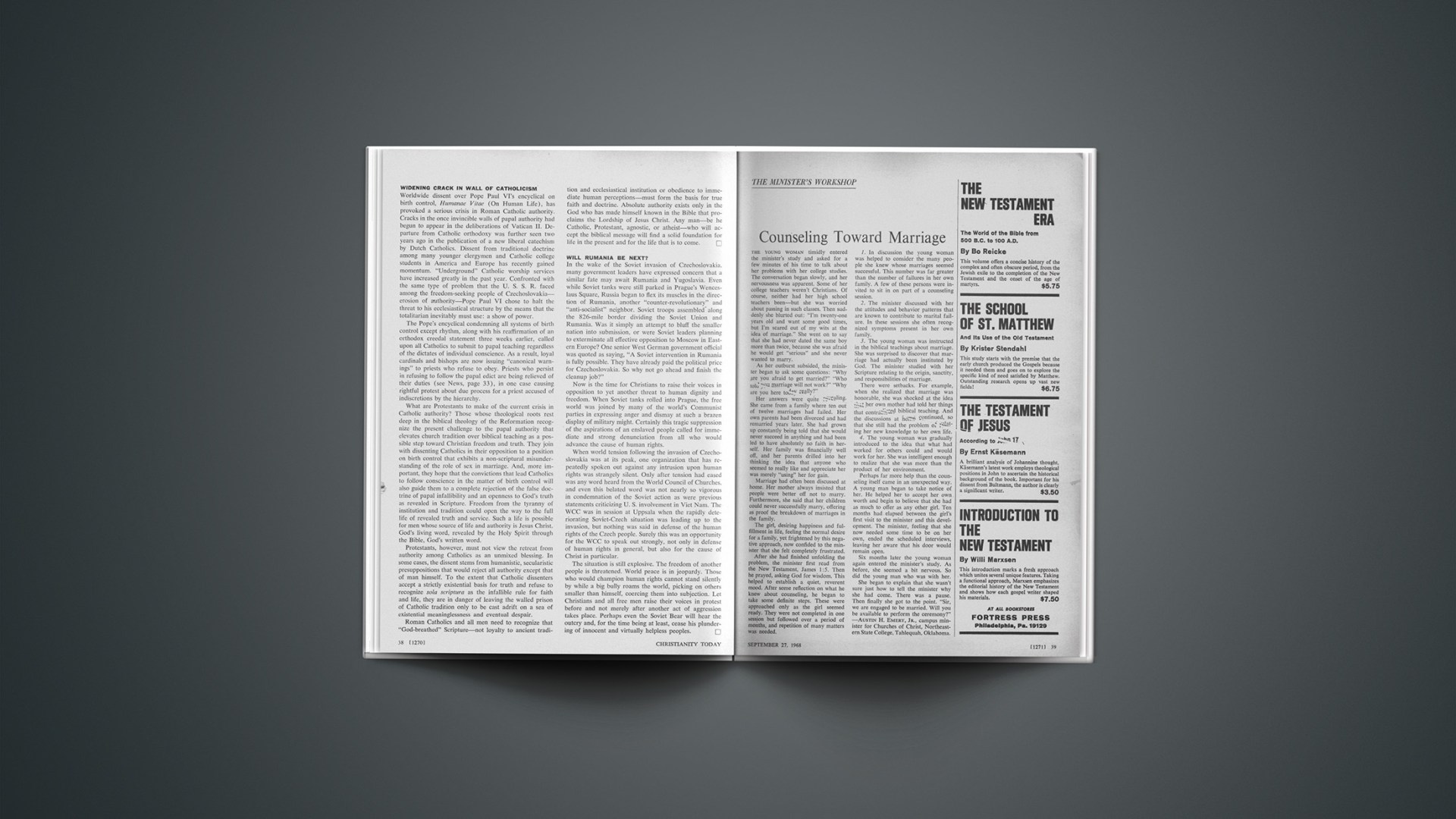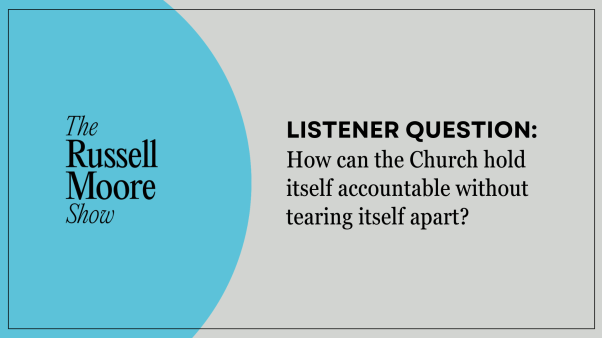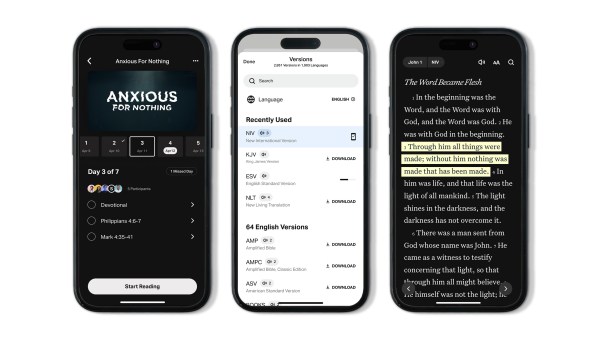The young woman timidly entered the minister’s study and asked for a few minutes of his time to talk about her problems with her college studies. The conversation began slowly, and her nervousness was apparent. Some of her college teachers weren’t Christians. Of course, neither had her high school teachers been—but she was worried about passing in such classes. Then suddenly she blurted out: “I’m twenty-one years old and want some good times, but I’m scared out of my wits at the idea of marriage.” She went on to say that she had never dated the same boy more than twice, because she was afraid he would get “serious” and she never wanted to marry.
As her outburst subsided, the minister began to ask some questions: “Why are you afraid to get married?” “Who told you marriage will not work?” “Why are you here today really?”
Her answers were quite revealing. She came from a family where ten out of twelve marriages had failed. Her own parents had been divorced and had remarried years later. She had grown up constantly being told that she would never succeed in anything and had been led to have absolutely no faith in herself. Her family was financially well off, and her parents drilled into her thinking the idea that anyone who seemed to really like and appreciate her was merely “using” her for gain.
Marriage had often been discussed at home. Her mother always insisted that people were better off not to marry. Furthermore, she said that her children could never successfully marry, offering as proof the breakdown of marriages in the family.
The girl, desiring happiness and fulfillment in life, feeling the normal desire for a family, yet frightened by this negative approach, now confided to the minister that she felt completely frustrated.
After she had finished unfolding the problem, the minister first read from the New Testament, James 1:5. Then he prayed, asking God for wisdom. This helped to establish a quiet, reverent mood. After some reflection on What he knew about counseling, he began to take some definite steps. These were approached only as the girl seemed ready. They were not completed in one session but followed over a period of months, and repetition of many matters was needed.
1. In discussion the young woman was helped to consider the many people she knew whose marriages seemed successful. This number was far greater than the number of failures in her own family. A few of these persons were invited to sit in on part of a counseling session.
2. The minister discussed with her the attitudes and behavior patterns that are known to contribute to marital failure. In these sessions she often recognized symptoms present in her own family.
3. The young woman was instructed in the biblical teachings about marriage. She was surprised to discover that marriage had actually been instituted by God. The minister studied with her Scripture relating to the origin, sanctity, and responsibilities of marriage.
There were setbacks. For example, when she realized that marriage was honorable, she was shocked at the idea that her own mother had told her things that contradicted biblical teaching. And the discussions at home continued, so that she still had the problem of relating her new knowledge to her own life.
4. The young woman was gradually introduced to the idea that what had worked for others could and would work for her. She was intelligent enough to realize that she was more than the product of her environment.
Perhaps far more help than the counseling itself came in an unexpected way. A young man began to take notice of her. He helped her to accept her own worth and begin to believe that she had as much to offer as any other girl. Ten months had elapsed between the girl’s first visit to the minister and this development. The minister, feeling that she now needed some time to be on her own, ended the scheduled interviews, leaving her aware that his door would remain open.
Six months later the young woman again entered the minister’s study. As before, she seemed a bit nervous. So did the young man who was with her.
She began to explain that she wasn’t sure just how to tell the minister why she had come. There was a pause. Then finally she got to the point. “Sir, we are engaged to be married. Will you be available to perform the ceremony?”
—AUSTIN H. EMERY, JR., campus minister for Churches of Christ, Northeastern State College, Tahlequah, Oklahoma.










